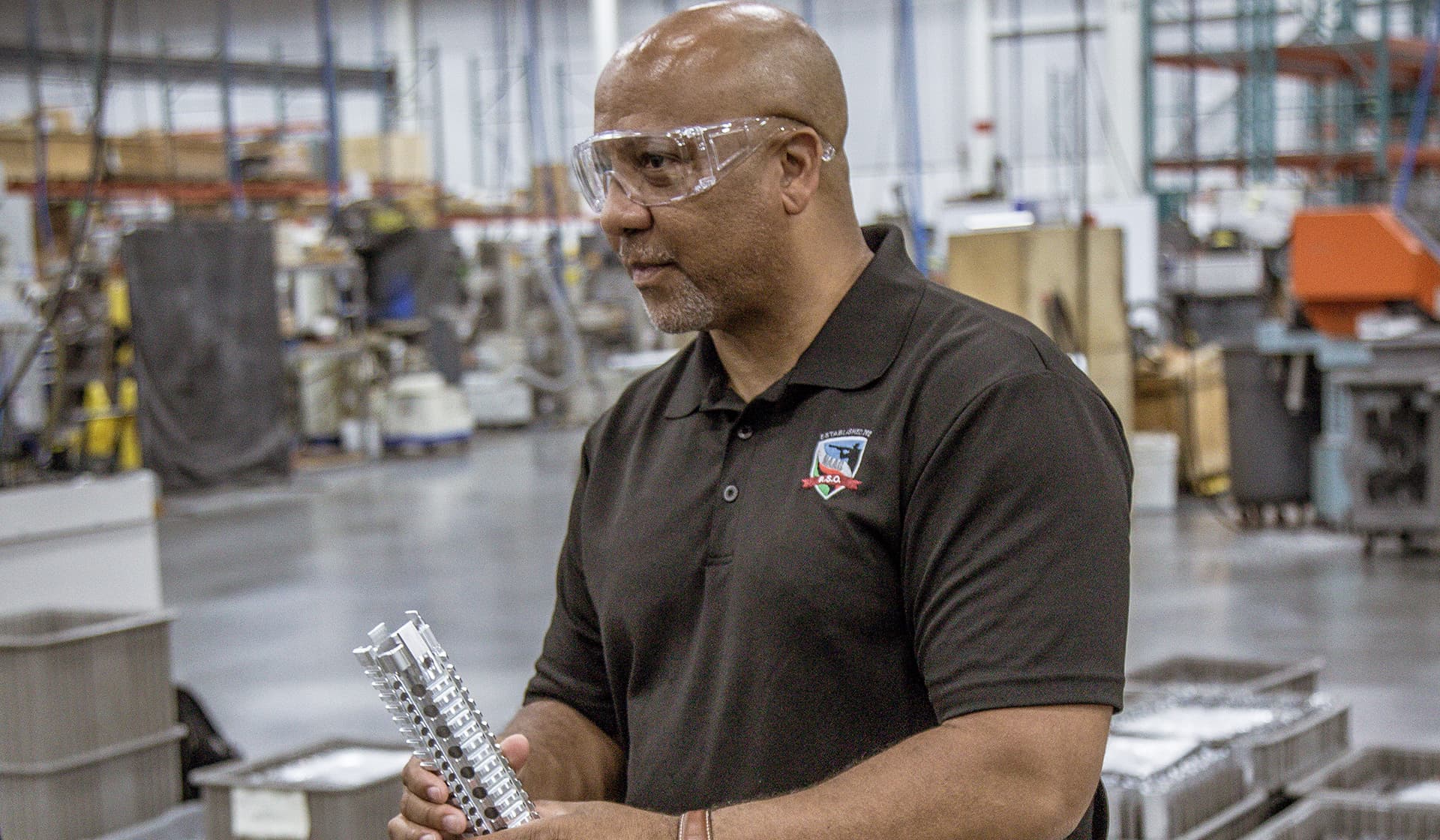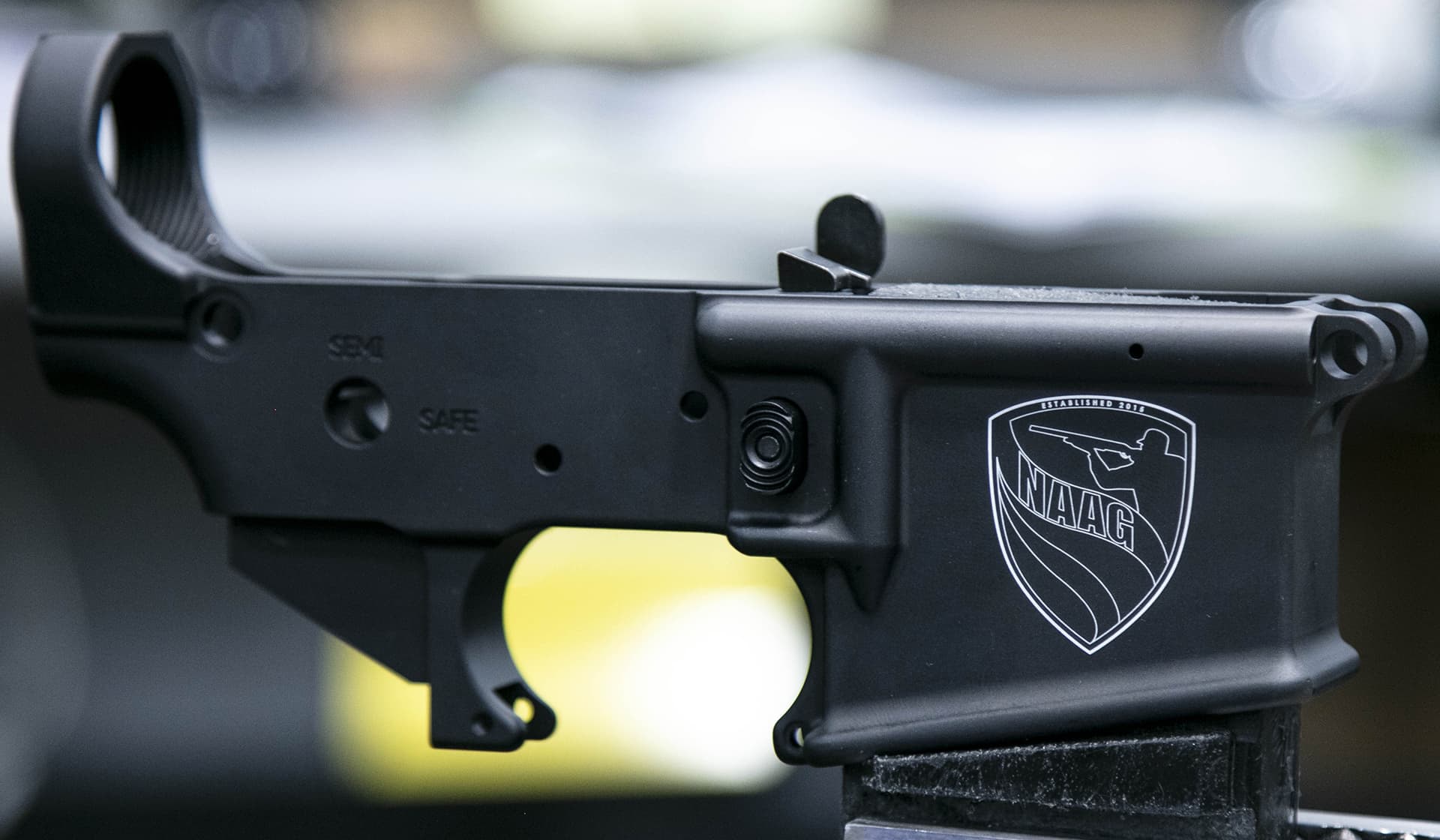An Interview with Philip Smith – Founder & President of NAAGA

When Philip Smith founded the National African American Gun Association (NAAGA) back in February of 2015, he was a virtual newbie when it came to guns. He’d been working as a human resources recruiter for a hospital and had no experience with guns until a couple of buddies from work convinced him to come out to the range with them one weekend.
“They literally bugged me from Monday to Friday and finally, on Friday, I agreed to go with them, just to get them off my back,” Smith said. “I spent about three hours just shooting everything—ARs, AKs, a .357 magnum. My fingers were sore when I left, but I was happy. I had such a good time.”
To make sure his enjoyment wasn’t just a fluke or all about the company he’d kept on his outing, he went back to the range the following weekend, this time alone. To his surprise, he had every bit as much fun.
“That’s when the lightbulb went on. I thought, you know what, as an African American male I had this much fun, and I know my people. If they had a bridge or a process where somebody could assist them to go from A to Z, from being a non-shooter to a shooter, they would love it just like I’m loving it. And that’s what I did. I went back home, put together some ideas, and then put together a website that spoke culturally to black folks.”
Philip didn’t have great expectations for his website when he launched it. Nor did his wife, who didn’t exactly share his vision at the time.
“When I launched the site, my wife thought I was crazy. She said nobody was going to join my little club,” he chuckled. “And I really couldn’t argue with her. But the first month I had 300 people join up with no advertising. I thought I might get 300 people for the year, but I’d already reached my goal. The next thing you know, I had 8,000 folks within a twelve-month period.”
Today, NAAGA has over 40,000 member and is growing steadily. The organization has five regions with regional directors, members in every state of union, and members all over the globe, including Europe, Africa, Asia, and South America.
“We’re getting about 1,000 new members every month now,” Smith confirmed. But he’s not resting on his laurels. “There’s nine million African American gun owners right now, and I think, really, after the pandemic, it’s probably closer to 14 million. Most of those folks still don’t know about us. So, for me, we still have a lot of work to do.”
Daniel Defense was able to pull Philip Smith away from some of that work for a few moments, as he drove to another appointment, and pick his brain on NAAGA, its mission, and some of the challenges he faces as president of this rapidly expanding organization.
DD: How would you describe a typical NAAGA member?
PS: We are not monolithic as a people, as gun owners. We have such a wide spectrum of folks. There is no one typical kind of black gun owner. With that variety comes a lot of diversity, and I think diversity is a point of strength.
DD: Do you have to be African American to be a member of NAAGA?
PS: No. We accept people whoever you are: black, white, Asian, Latino—everyone’s welcome. As of late, we’ve had a huge surge of Asian and Latino, as well as white, members. We have over 1,000 white members now. That encourages me. That makes me feel good that other folks outside of the black community are saying, “You know what, those guys are good over there and doing something right. I’m going to join them.
DD: What about women? Do you have many women members?
PS: That’s probably been the most surprising thing since I started the organization. We were at 60 percent African American women consistently every year, up until the pandemic. When the pandemic happened, a whole bunch of guys joined. Now it’s about 65 percent men and 35 percent women.
Women tend to come in groups. They like hanging together—shopping together, buying guns together, and shooting together. Black women have really stepped up and been consistently active in joining.
DD: Any issues with a diverse membership, given today’s polarized political climate?
PS: We have a saying in the organization: We agree to disagree without disconnect. You’ll be accepted at NAAGA no matter who you are, and you’re going to feel comfortable. That’s the reason people join. They know they can be themselves, and we’re going to appreciate and respect you and make sure you feel comfortable. That’s been the driving force behind the consistent growth of the organization. We’re getting people from every walk of life: military, law enforcement, teachers, doctors, engineers, republican, democrat, gay, straight.
If you want to talk about politics, you can do that. But we don’t come to shoot to talk about politics. We come to learn how to shoot.
DD: So, most of your members are not experienced gun owners or users when they join?
PS: To be honest with you, most black folks who are joining now have never touched a gun. Seventy percent are newbies. That’s a good thing for us because we don’t have to retrain them or break bad habits. We try to really educate them from A to Z on every aspect of firearms. All of our sessions are covered by a certified instructor. You’re not allowed to touch a gun until you’re taught how to safely touch a gun.
DD: Are the courses/activities offered by NAAGA primarily centered around gun safety and self-defense, or do they also focus on sport shooting, competition shooting, and other types of recreational shooting?
PS: It’s a variety of all of it, but 80 percent is self-defense. Most of our folks just want to know how to shoot guns and protect their families if somebody breaks through the door at 2:00 a.m. They’re happy with that. They’re not trying to be Seal Team Six.
DD: To what do you attribute the fact that so many new members are new to firearms and shooting? Do you think there’s a lack of a gun culture in the African American community, or even an anti-gun sentiment?
PS: That’s a conversation we have literally every other day. I think there’s a political and social element that’s in play here. A lot of our political leaders are democrats in the black community, and they have a narrative that’s anti-gun. They think that firearms are bad.
As far as I’m concerned, and I’ve written many editorials about this, gun violence is very different from gun rights. And if you don’t understand those nuances and the individuals that push those nuances very strategically, you’ll get caught up thinking that guns are bad.
DD: Given that NAAGA also gets involved in political issues, are there challenges in striking a balance between Second Amendment issues, which tend to be championed by the right, and social issues like racial equality, which tend to be championed by the left?
PS: It is incredibly hard. But from my stance with the organization, I have to be very sensitive to those individuals who are either republican or democrat or libertarian and be able to lay out information with as much fact as possible. I understand exactly the ramifications of making just one wrong statement, so I’m very careful about that. So, we try to give information that is factual versus biased.
DD: Do you see NAAGA as competing with the NRA for members?
PS: I don’t see us as an NRA equivalent for black folks. We have more of a cultural connection with our folks, and we make them understand that there’s a history behind them even being allowed to have a gun.
The one thing that we do with all our members when they join, is they go through a new member orientation class. In that class, they learn about the black history of arms. And we talk about many African Americans who sacrificed their life, or their time or their beliefs, for our benefit, so I can have this conversation with you today.
I can’t speak for other organizations, but I think that our folks take it a little bit further as far as gun ownership because, for us, it’s not necessarily stepping on our rights. We have to first establish to everyone that we have that right. Because we have an extra step to take because of the realities that are out there. But, no, we don’t try to compete with anyone else.
DD: Do those “realities that are out there” necessitate a public relations aspect to NAAGA’s mission, dealing with perceptions that some outside of the African American community may have?
PS: Absolutely. This is my baby, when it comes to PR. I believe the only way we are going to overcome the great marketing job that’s been laid out, particularly when it comes to perceptions against African Americans, is to fight that marketing with our own version of a positive view. A positive image of black people with guns. And the best ways to do that, I believe, are through videos and pictures.
If you look at our website, you will never, ever see anything “ghetto-ish,” in terms of a gang-banger or a guy with his pants hanging down, holding the gun sideways, doing gangster stuff. We intentionally make sure that every photo is something positive in a positive light of African Americans with guns.
You’re dealing with the mindset of folks. And mindset and perception doesn’t change overnight. You have to prove to them that you are what you say you are. We try to make sure that our actions are positive, consistently every day.

DD: How has your relationship with Daniel Defense been over the years?
PS: Daniel Defense has been very, very good to us. Mr. and Mrs. Daniel met me three or four years ago, when I first started out, and they treated me very well when I didn’t really have a pot to piss in. They [and the DD staff] let me come out, gave me a hug, embraced me, and said if there’s anything I needed to let them know.
The help I’ve gotten from Daniel Defense has been very helpful in allowing me to negotiate the landmines of the firearms industry. Because, if you don’t know what you’re doing, you can come across as either stupid or arrogant or both. They’ve helped me along the way, and I’m proud to say they’ve been a good partner.
As our interview wound down, Smith wanted to emphasize where his philosophy of inclusion—not just for NAAGA but in his personal life—came from. Growing up in Vallejo, California, Smith was exposed to people and cultures from all over the world, with a wide array of backgrounds. It was the exchange of ideas from all of these different cultures that formed who he became as a man.
“Those experiences have formulated my perception of people nowadays. I think people are basically good. You just need to know how to connect with them. That’s the essence of our organization—connecting with one another and accepting each other’s differences for points of strength.”
He also wanted to point out that, as his organization’s membership grows and African American gun ownership rises, the firearms industry should be paying close attention.
“If I’m a gun manufacturer right now, I would be laser-focused on the black community. Because that’s a huge market of people who are just learning about guns. Just kind of finding their way. And they’re looking for someone who can get them information that appeals to them.”
Click here to learn more about NAAGA and becoming a member.
Best,
W.D.
DDM4 v7 LW
DDM4 PDW

